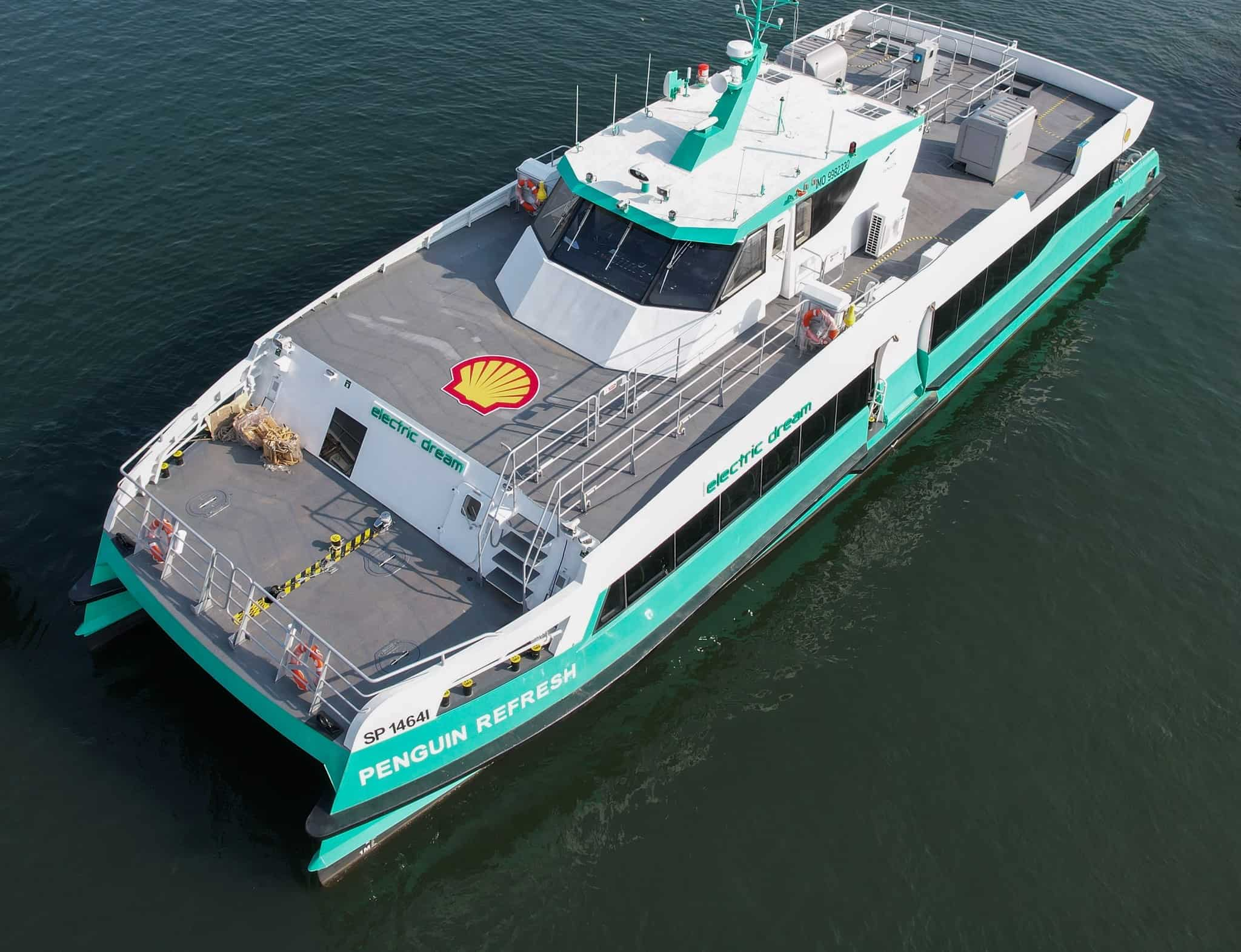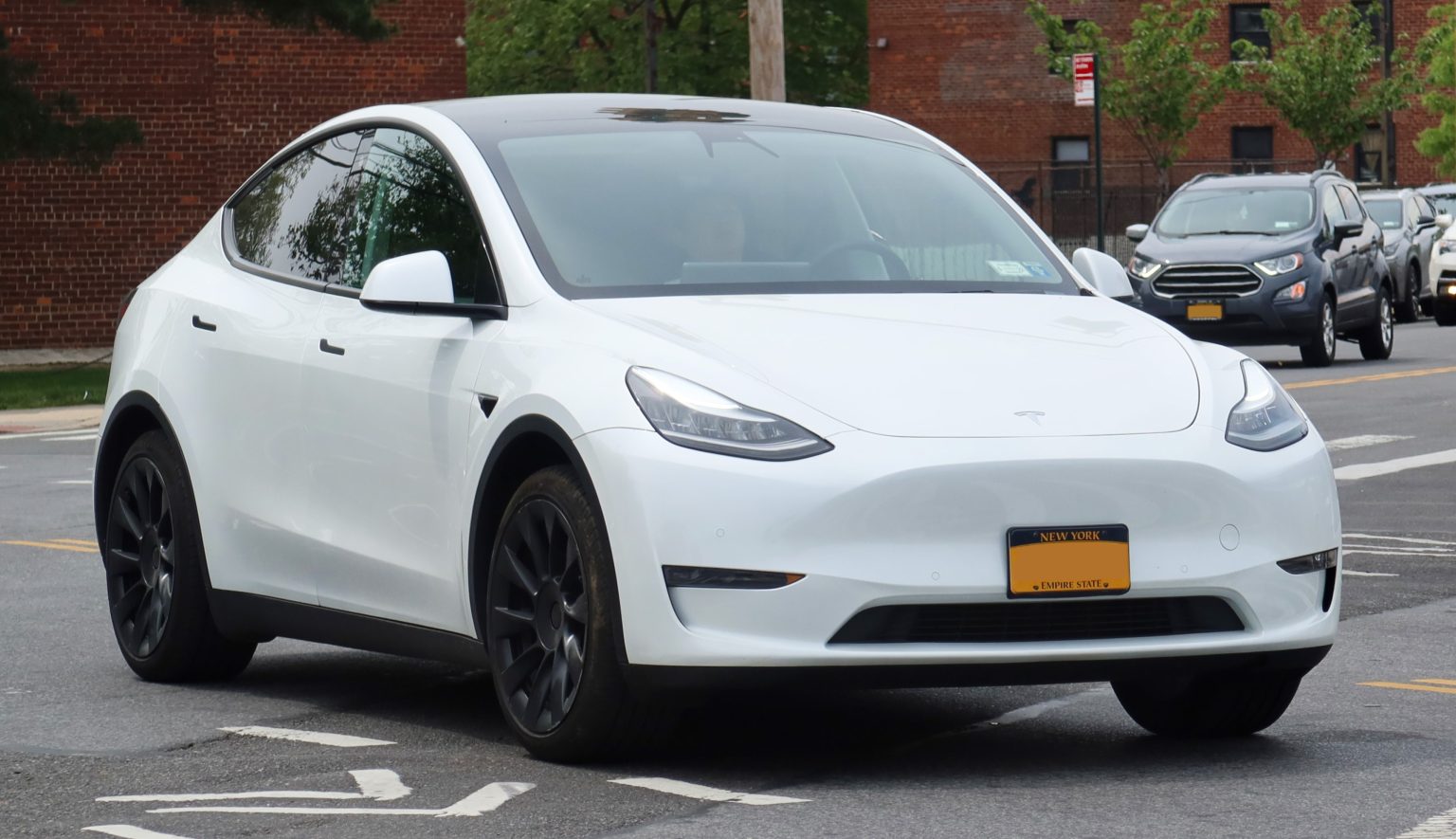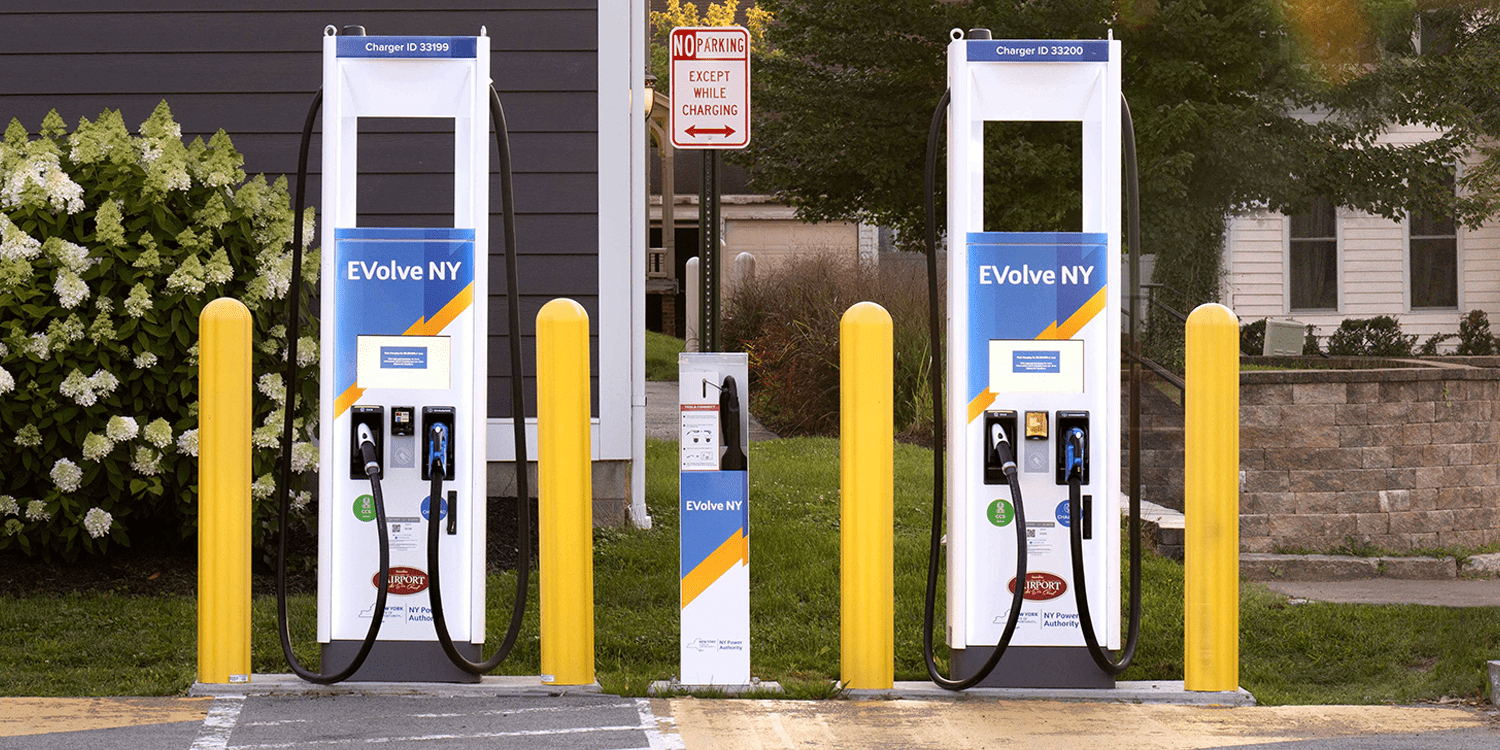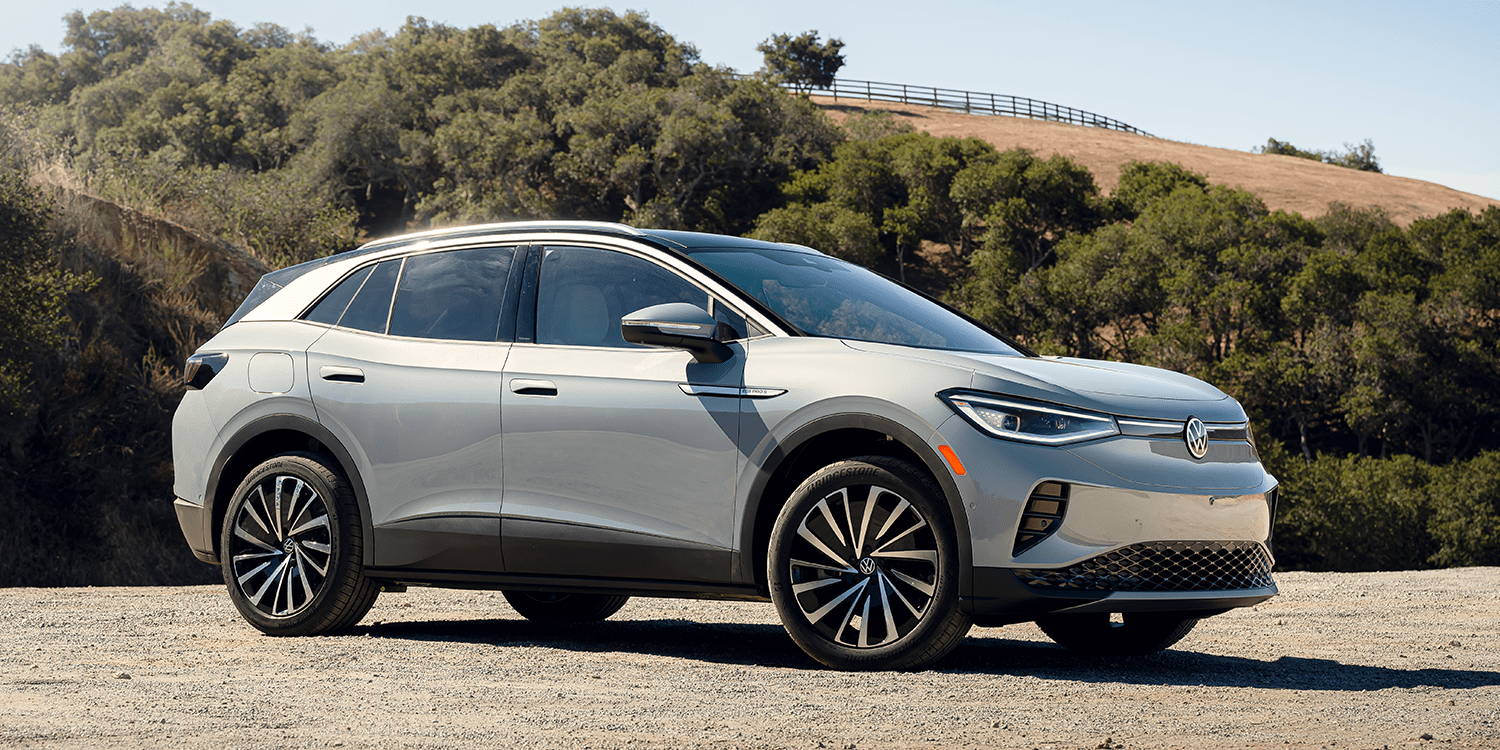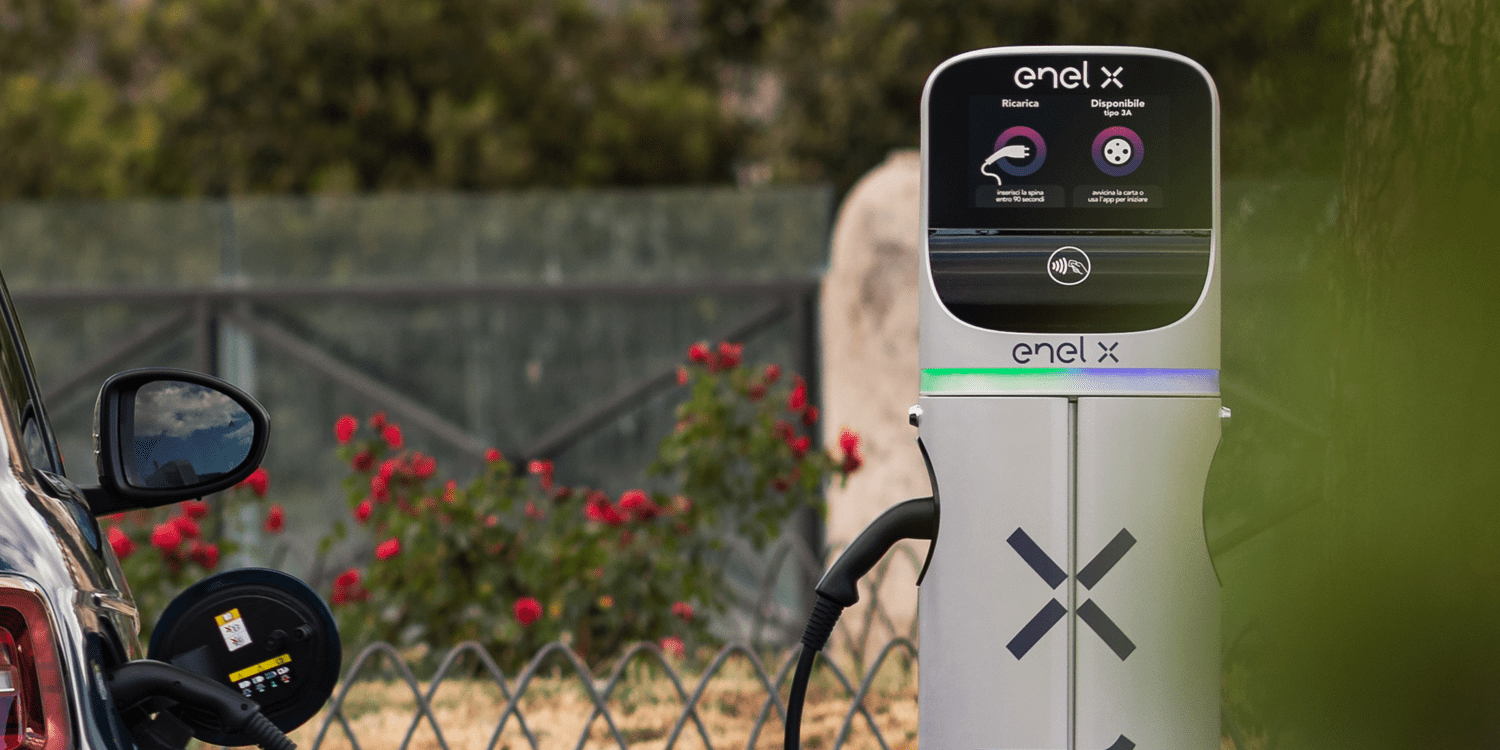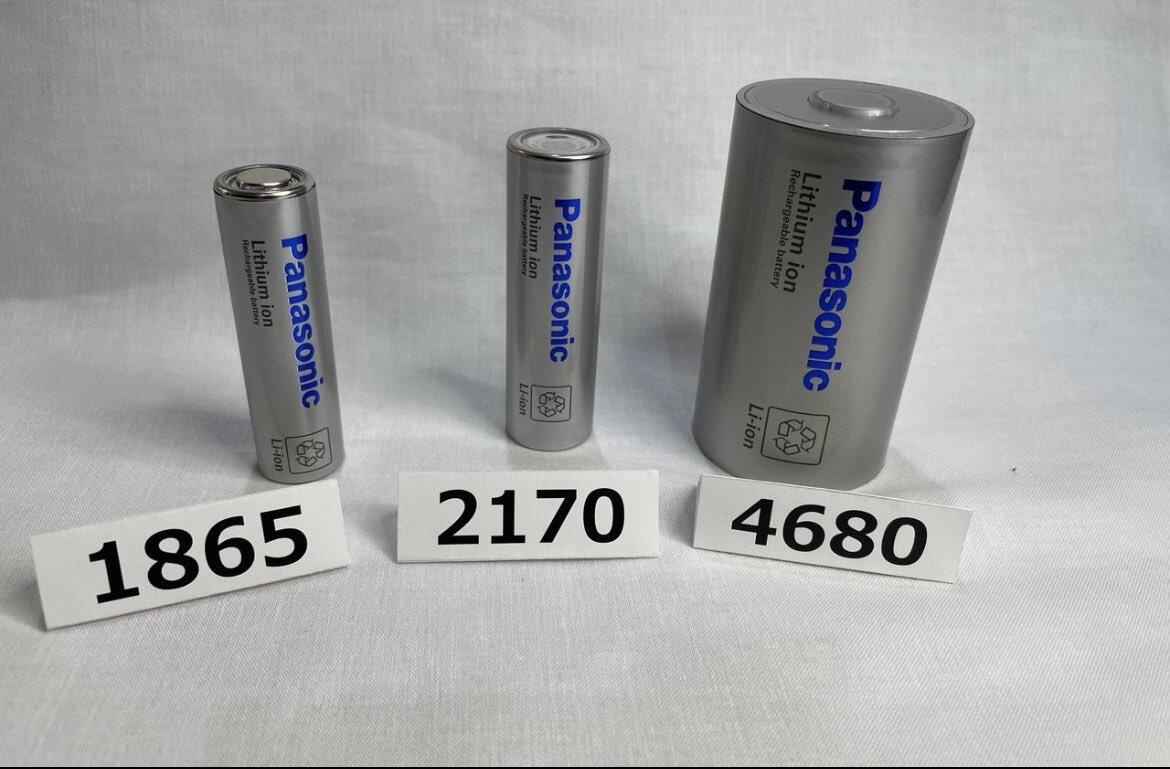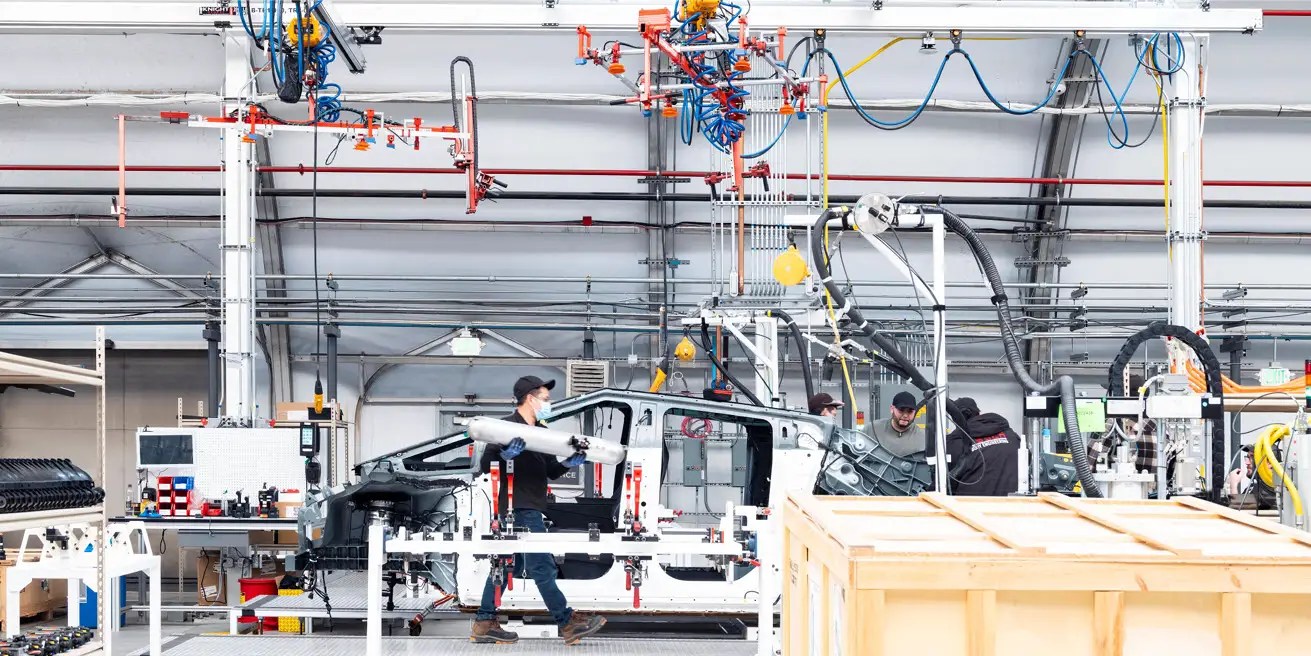Shell collaborates with the Maritime and Port Authority of Singapore (MPA) to reduce emissions and promote electric harbor craft in the nation. The oil giant revealed its first fully electric passenger ferry, the Penguin Refresh, on Monday, as part of the partnership.
With the trend towards zero-emission electric transportation gaining momentum, major oil companies are diversifying their interests to include renewables and electric alternatives.
Shell has been acquiring and investing in various companies over the past several years to move away from fossil fuel-related sales. The company recognizes that as more electric vehicles hit the road, fewer gas stations will be needed.
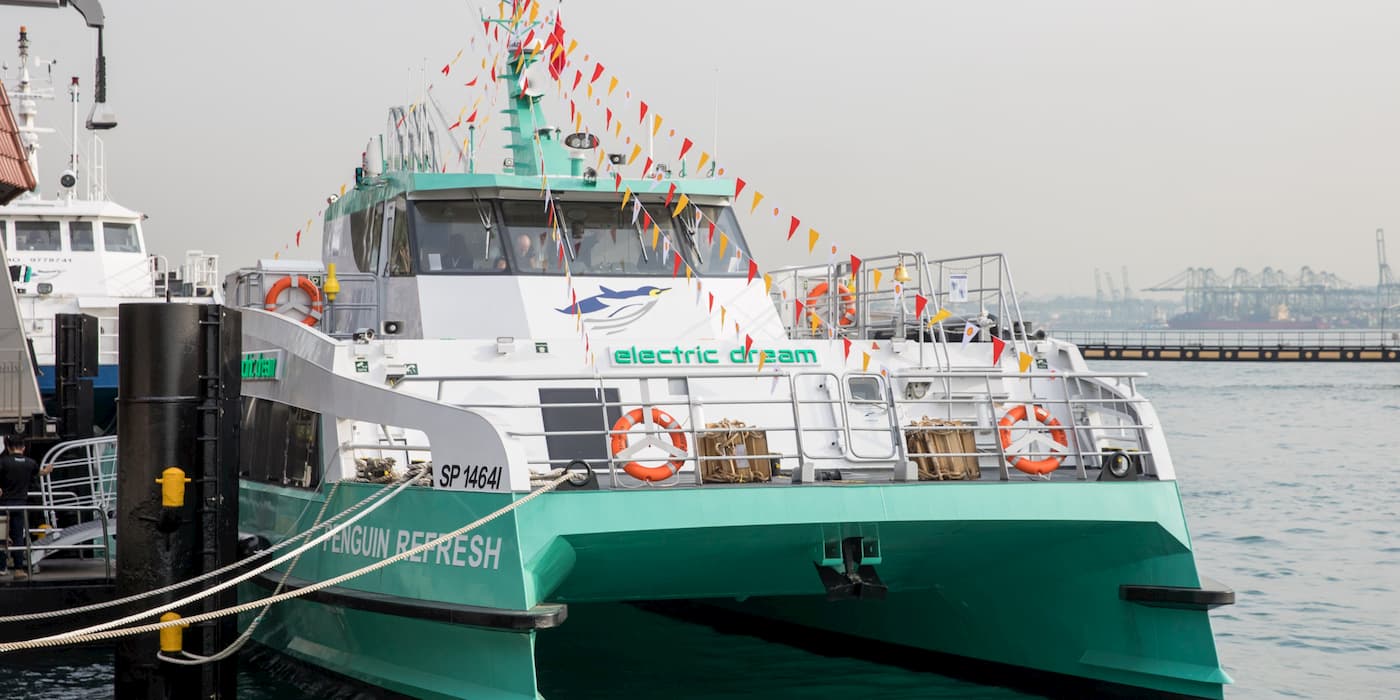
To address this, Shell has started deploying EV charging stations and expanding its network of EV charging ports, with over 100,000 currently available, and is aiming for more than 500,000 by 2025. Shell has also acquired Volta, an EV charging and media company, to expand its infrastructure and diversify revenue streams.
Shell’s latest innovation, the electric ferry in Singapore, is another step towards a sustainable future. The electric ferry, designed and built by Penguin International Limited, has a lithium-ion battery system capable of 1.2 MWh and can carry 200 passengers. It will transport around 3,000 passengers daily, or about 1.8 million trips a year between mainland Singapore and Shell Energy and Chemicals Park.
This initiative is part of a broader effort to reduce emissions from the Port of Singapore, one of the busiest ports globally. By 2030, all new harbor craft are required to be net zero, and by 2050, net zero emissions across the harbor craft, pleasure craft, and tugboat sectors are targeted.
See also: Shell partnering with BYD for developing an electric vehicle battery charging network
Shell will work with MPA to deploy charging infrastructure to support the transition and research developing low and zero-carbon fuels. The collaboration is expected to save around 1,952 tonnes of diesel fuel and reduce CO2 emissions by approximately 6,258 tonnes annually.
As the world moves towards sustainable transportation, Shell is committed to playing a leading role in promoting renewable energy sources and electric alternatives, and this latest electric ferry initiative is a testament to its efforts.

